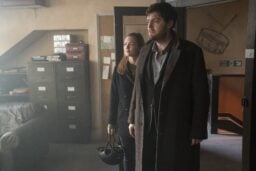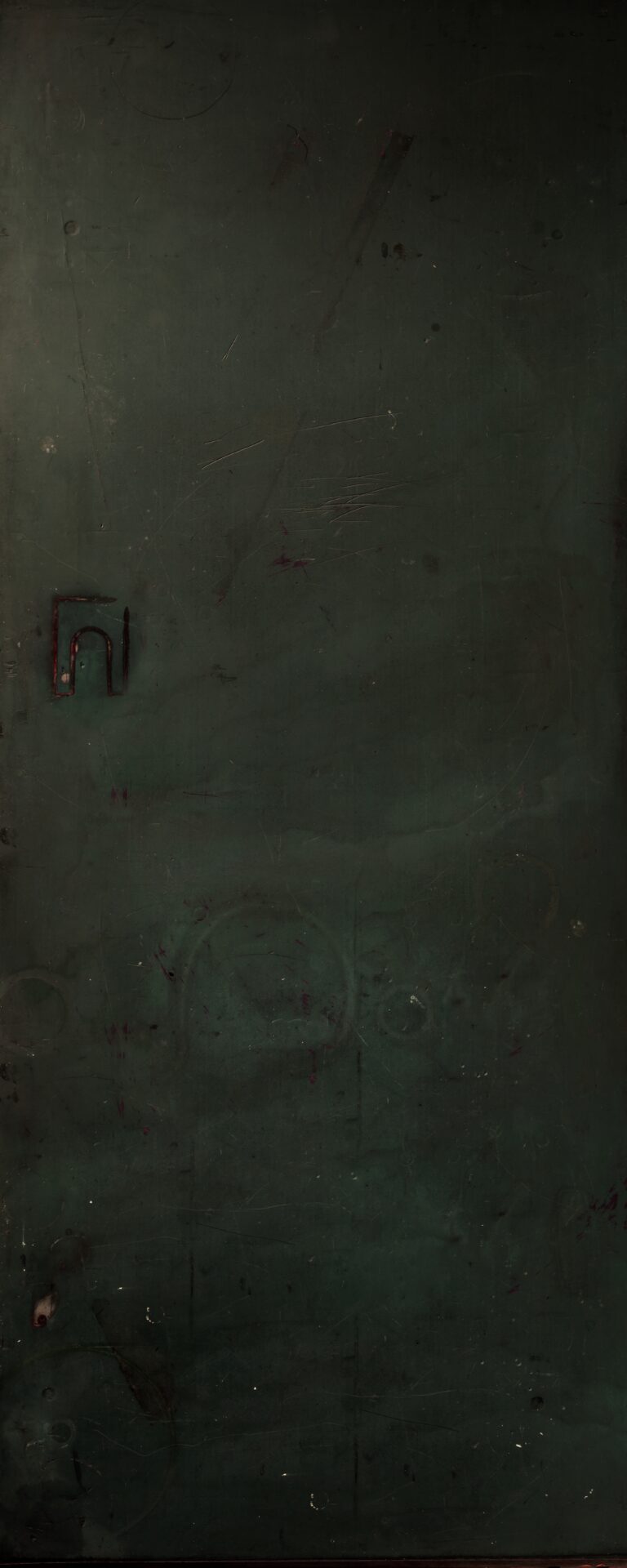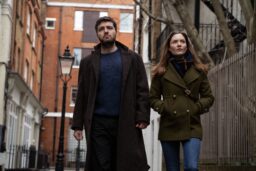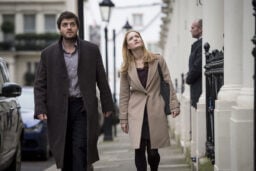Epigraphs in Lethal White
I said, they’re supposed to be bad luck, aren’t they?’ repeated Strike, as they drove away from the pub.
Lethal White, Robert Galbraith
‘What are?’
‘White horses,’ he said. ‘Isn’t there a play where white horses appear as a death omen?’
Rosmersholm, the play from which all the epigraphs in Lethal White are drawn, was written by Norwegian playwright Henrik Ibsen in 1886. Ibsen’s most famous play is probably The Doll’s House, but Rosmersholm is regarded as one of his greatest works. The play is set in the old manor-house of John Rosmer, a former clergyman whose family has been long been part of the ruling elite. After the suicide of his wife, Beata, a year ago, John has come to doubt his religious faith and support the newly elected reformist government. He is supported and encouraged in this by his dead wife’s former companion, the young, rebellious and free-thinking Rebecca West. Though Rebecca and John are in love, they have not confessed this to each other. Rosmer’s former brother-in-law, Kroll, is disgusted when he learns Rosmer is now in sympathy with these radical causes and has lost his religious faith.
After refusing John’s offer of marriage, Rebecca admits she steered Beata to her death. She was convinced that Rosmer could not live to his full potential in the marriage, and she was in love with him herself. His essential goodness however makes her realise she has made a terrible mistake, so she refuses him when he does propose marriage. Finding they are still bound by the ideas of Christian morality they have been trying to escape, and unable to live with their guilt, they commit suicide together in the same place Beata killed herself. Throughout the play, characters mention the legend of White Horse of Rosmersholm – seeing it is harbinger of death, or, the manner in which the dead haunt the living in this place.
If the name ‘Rebecca West’ sounds familiar it might be because the writer Cecily Isabel Fairfield took it as her pen name. She was a famous twentieth century feminist, journalist, reviewer and novelist.
In 2019 none other than Tom Burke starred in Rosmersholm at the Duke of York’s Theatre in London, and the production was nominated for an Olivier Award for Best Revival.
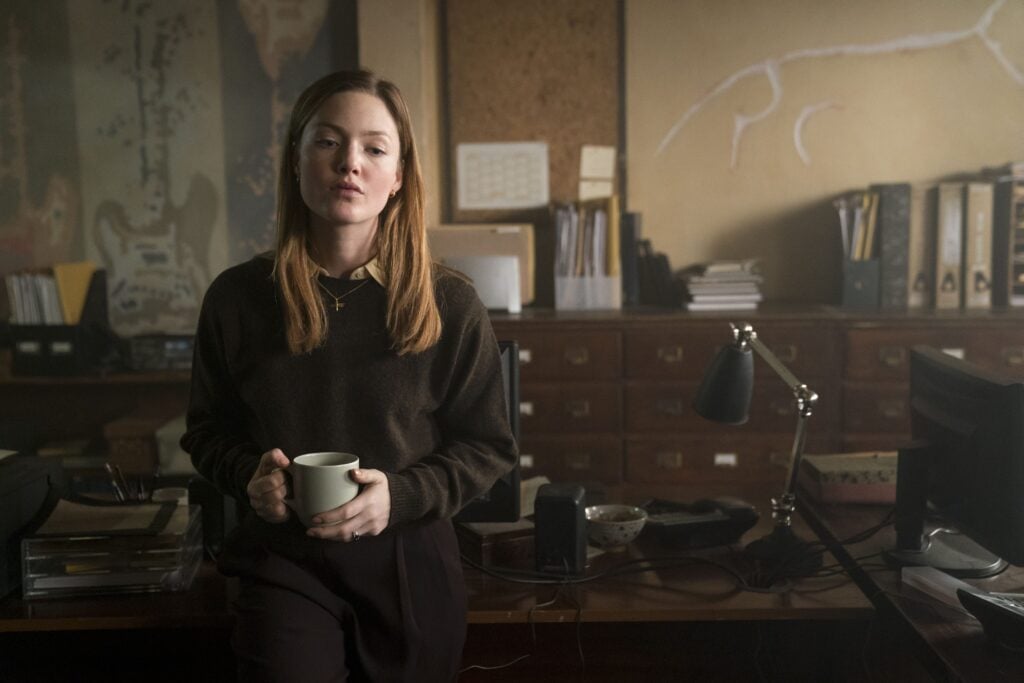
Like Lethal White, the play touches on reformist politics and class conflict, limiting marriages, guilt, and the long shadows cast by the dead. In the play the White Horse is a family legend, spotted by those to whom tragedy is coming, while in Lethal White the White Horse appears as a carving, a landmark and as two different pubs. It also appears in a painting of a mare grieving over its dying white foal, a victim of the Lethal White syndrome which gives the book its title. In the book and the play the ghosts are personal and internal, though at one point Jasper Chiswell seems to think a dead man has telephoned him, and in both works deaths which happened long before the action begins contribute to, or even create, the current drama. In the play, the death is the suicide of Beata; in the book it turns out that the actions of Jasper Chiswell’s late oldest son, Freddie, and the death of Geraint and Bella Winn’s daughter, Rhiannon, have caused ripple effects which reach the present day.
Chapter 1
I hear that he means to enlarge… that he is looking for a competent assistant.
– Henrik Ibsen, Rosmersholm
He laughed and said, ‘So whut’s this all about? Wasnae expectin’ to hear from you any time soon.’
Lethal White, Robert Galbraith
Strike hesitated. ‘I was thinking of offering you a job.’
In the play, Rosmer’s brother-in-law Kroll is reflecting bitterly on the success of the owner of a reformist newspaper, Mortensgaard. Kroll wants Rosmer to lend his name to a rival newspaper he is setting up, pointing at the portraits on the wall of his forbears who have held positions of power and responsibility, and reminding Rosmer his name carries authority in the area. Rosmer has to confess his ideas are no longer the same as Kroll’s.
In Lethal White, the expansion in question is that of the agency. Eight months after the arrest of the Shacklewell Ripper and Robin’s wedding, the agency is busy and Strike and Robin need a new sub-contractor. While Robin is off work, moving into her new home in Deptford with Matthew, Strike calls a Glaswegian ex-Rifleman called Sam Barclay. Strike investigated Barclay, who has the appearance of an affable owl, for drug dealing, but discovered he was innocent of the charge and had actually been documenting the corruption of his superiors. Strike has just shaken hands on the hiring when he gets a call from Denise, the temp hired to cover basic paperwork while Robin is away, saying a disturbed young man is in the office. Strike hurries back to find Billy, who wants to know the truth about a murder he believes he witnessed when he was a child, but before he can tell Strike much, he flees the office.
Chapter 3
I fought out that fight alone and in the completest secrecy.
– Henrik Ibsen, Rosmersholm
‘By your own admission you haven’t told him the full extent of your anxiety.’
Lethal White, Robert Galbraith
The epigraph appears in the play when Rosmer tells his brother-in-law that he struggled with his doubts about his faith in complete secrecy, keeping his internal struggles secret from his wife Beata. It turns out Beata did have her suspicions, news which shakes Rosmer profoundly. Robin too is struggling and also trying to keep those struggles from those closest to her.
In the closing stages of the investigation into the Shacklewell Ripper, Robin believed her career with Strike was over (Career of Evil). But Strike bursting into the church in Masham in the middle of the wedding ceremony, gave her new hope. On her wedding day, Robin discovered her new husband has deleted Strike’s messages asking her back to work. The wedding was a disaster, but on her honeymoon when Matthew became ill, Robin allowed herself to be talked into giving the relationship another try.
Eight months later, Robin is having panic attacks since her encounter with the Ripper, and trying to keep them secret from Matthew and Strike.
Nevertheless, she ends her therapy – being constantly challenged by Matthew, her mother and by her therapist is too much – deciding to trust to the CBT exercises she has found useful. Strike is the only person who does not seem to be ‘at’ her the whole time, though as her therapist points out, Strike does not know yet how debilitating her panic attacks can be.
As Robin wanders around her new neighbourhood, having told her therapist she will not be coming to any more sessions, crumbling stone skulls on top of gateposts attract her attention to the rose garden of St Nicholas’s where she can enjoy her ice cream in the sun. On her way back home, she passes the White Swan Pub, but, distracted by a call from Strike about Billy, for the first time she doesn’t glance at the carved swan on the corner of the building, which usually reminds her of the swans sailing past in the background of her wedding photos.
The panic attacks continue though, meaning Robin had to pretend to be having an asthma attack at one point while undercover at the House of Commons. Still, she succeeds in bugging the office of Geraint Winn undetected.
Chapter 16
… a man with as dirty a record as his!… This is the sort of man that poses as a leader of the people! And successfully, too!
– Henrik Ibsen, Rosmersholm
‘Yeah, and I fell for it, hook, line and sinker. Thought he was some kind of Robin Hood.’
Lethal White, Robert Galbraith
Kroll is offended that a reformist like Mortensgaard is gaining followers in his town. The radical in Lethal White is Billy’s brother Jimmy Knight, who Strike first encounters when searching for Billy leads him to a he attends a Community Olympics Resistance meeting in the Well Community Centre in East Ham, moved from the White Horse pub. After the meeting he also meets his girlfriend, Flick. The following week Strike finds himself hired by Jasper Chiswell, Minister for Culture, who is convinced Jimmy Knight is working with Geraint Winn the husband of Minister for Sport, Della Winn, to blackmail him. Jimmy and Billy lived with their father on Chiswell’s country estate on the outskirts of Woolstone near the prehistoric carved figure, White Horse of Uffington.
In Chapter 16 though Strike is traveling up to Manchester, to meet Jimmy Knight’s ex-wife, Dawn. Dawn tells him Jimmy has always had a lot of female, leftist fans, who treat him like a rockstar, as his current girlfriend, Flick, seems to be noticing in London. Though Dawn fell for him hard at first, she found he had cards on all her accounts, and he tried to sue her after their breakup. She had a soft spot for Billy though and blames his mental health troubles on their father ‘a violent alkie’ who Billy said would go to hell for what he did for Jasper Chiswell’s father.
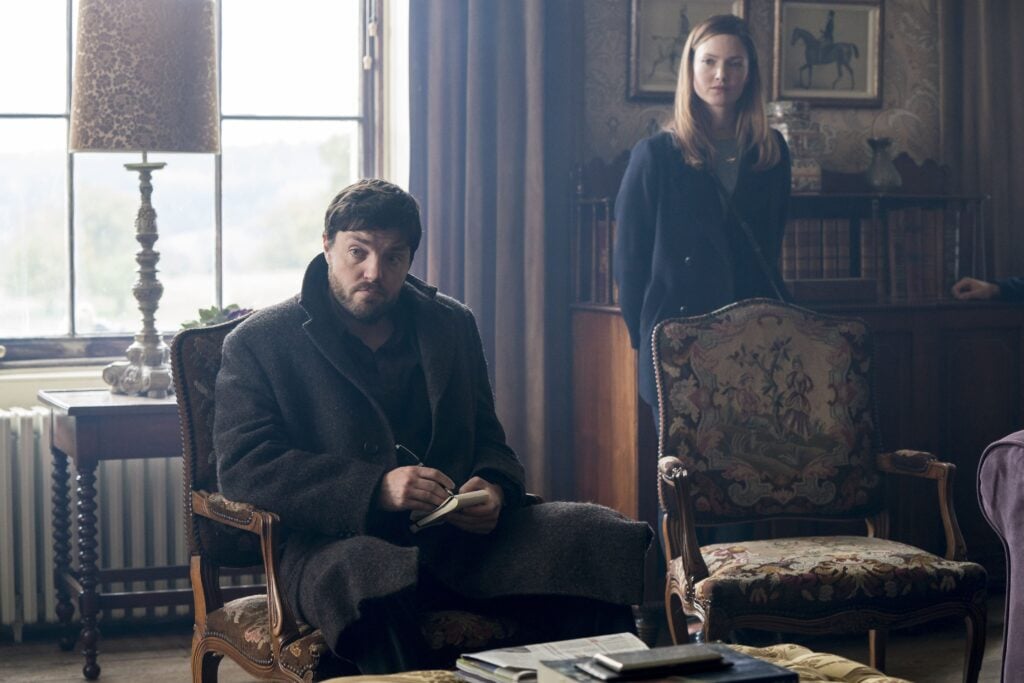
Chapter 26
I am not so entirely alone, even now. There are two of us to bear the solitude together here.
– Henrik Ibsen, Rosmersholm
‘Robin, you didn’t have to—’
Lethal White, Robert Galbraith
‘I know I didn’t,’ said Robin. She pulled a chair up beside Strike’s. ‘But I wouldn’t want to have to deal with this alone.
In Rosmersholm, John has confessed his change of beliefs to Kroll, but when Kroll reminds him, he is standing alone, John tells him he has Rebecca as a companion in the house, and in his beliefs. It is the moment that Kroll suspects their relationship might be romantic. John and Rebecca are in fact in love, but at this point, both are in denial about their feelings.
In Lethal White, Strike’s nephew has been rushed to hospital with a burst appendix while his parents, Lucy and Greg, are away, and now has a nasty case of sepsis. Though Strike does not particularly like children, Jack is his favourite of Lucy’s children, and he finds waiting by Jack’s bedside in the ICU until his parents can get home exhausting and upsetting. He notices for the first time how much Jack looks like his and Lucy’s mother, Leda, and when Robin calls the next day, Strike is shocked at how emotional he is. It is, he thinks, the first time he has cried since he lost his leg. Robin comes to the hospital at once, appearing on the ward with tea to be greeted by a look of unguarded happiness and gratitude. He resolves that as soon as his nephew is recovered, he’ll take him to the Imperial War Museum. He also learns that Robin did not particularly enjoy her anniversary weekend at Manoir aux Quat’Saisons.
Strike doesn’t call his current girlfriend, Lorelei, at all. When they know Jack is out of the woods and Strike sees Robin out of the hospital, the dirt and heat of a London afternoon, with the smell of stocks in the air, seems suddenly full of beauty.
Chapter 38
Oh, this killing doubt!
– Henrik Ibsen, Rosmersholm
‘The thing is,’ she said loudly, in a sudden rush of words, ‘I absolutely know that Papa would never have killed himself…’
Lethal White, Robert Galbraith
As Robin and Strike discover the nature of the blackmail plot, Robin finds Jasper dead in his London home in Ebury Street. Izzy Chiswell, Jasper’s daughter, refuses to accept the police conclusion that her father’s death was a suicide. She asks Strike to her mews house in Chelsea, and after paying Strike for the work the agency did on the blackmail case, she asks him to investigate his death – convinced her stepmother, Kinvara, murdered him. Strike and Robin too have their doubts about the police’s conclusion, but Strike also knows that clients who seek nothing but confirmation of their own theories are always troublesome. Izzy’s sister however thinks Jimmy Knight had something to do with it.
In the play, John doubts that Rebecca’s love for him is genuine and pure and the proof he asks for is far more terrible than what Izzy is asking for. Her doubts too, however, will lead the investigation and the family to a dark conclusion.
Chapter 43
… I am afraid it will not be long before we hear something of the family ghost.
– Henrik Ibsen, Rosmersholm
Freddie, however, was immediately recognisable, because unlike his sisters he had inherited his father’s protuberant lower lip.
Lethal White, Robert Galbraith
Strike knows of the Chiswell family before the case begins. As well as having met Izzy occasionally – she is an old school friend of his ex-fiancée, Charlotte Campbell, he also investigated the death of Jasper’s eldest and favourite son, Major Freddie Chiswell of the Queen’s Royal Hussars. Freddie was killed in Basra, Iraq during an attack on a convoy and Strike tells Robin he was a ‘prize shit’. He’d never had so many people ask whether the dead officer had been shot in the back by his own men.
While interviewing the family at Chiswell House after Jasper Chiswell’s death, Robin examines the family photographs stacked in the loo. She finds many of Freddie there and also finds a group picture including him and Rhiannon Winn, the daughter of Geraint and Bella Winn who tragically committed suicide as a teenager.
In the play, Rebecca is speaking lightly of the White Horse who augurs death at Rosmersholm after Kroll has broken off his friendship with her and John over their progressive beliefs. Her off-hand remark though is prescient. The White Horse won’t be coming for Kroll though, but rather, once the secrets of Beata’s suicide emerge, for her and Rosmer.
Chapter 56
I cannot – I will not – go through life with a dead body on my back.
– Henrik Ibsen, Rosmersholm
‘I’m going to find out what happened to the kid you saw strangled, Billy. That’s a promise.’ The psychiatrists looked surprised, even disapproving. It was not part of their profession, Strike knew, to make definitive statements or guarantee resolutions.
Lethal White, Robert Galbraith
In the end the ghost of Rosmer’s first wife, Beata, defeats Rebecca and John, but when this line comes in the play, John is about to propose to Rebecca in hopes of entering a new life with her. Almost in the same moment Rebecca realises she cannot accept due to her own guilt and culpability in Beata’s suicide.
Strike might have only a vague memory of the play, but he has plenty of personal experience of how mysteries from the past can torment the living. When he finally locates Billy Knight in an institution with crocketed spires and byzantine windows covered with iron bars and hears the full story of what Billy witnessed, makes a promise to discover the truth. The promise will lead to a moonlight dig outside Steda cottage on the Chiswell estate where he once lived, and dealing with Kinvara afterwards leads Robin to a significant discovery.
Alongside the death of Jasper, the mystery of what Billy saw is also solved in the end so Strike will keep his promise and, as Strike notes, Billy turns out to have been a bloody good witness.
Chapter 69
I have foreseen all contingencies – long ago.
– Henrik Ibsen, Rosmersholm
‘I’m going to look a lot more plausible and presentable than Flick and the Butchers if this comes to court, I really am.’
Lethal White, Robert Galbraith
Rosmer of Rosmersholm may believe he has foreseen all contingencies, but the play still ends in tragedy.
In the final chapter of Robin and Strike’s investigation, Robin is facing an arrogant killer who also believes their plans are faultless on a barge in Little Venice, and they have a gun. Playing for time and hoping Strike and the police can reach her before the killer disposes of her with the same clever cold bloodiness they displayed killing Chiswell, Robin challenges the killer’s story. The killer proves capable and confident, but as Robin lays out the case, panic begins to set in.
Ibsen’s play has many resonances with Lethal White and provides pleasingly apt epigraphs for every chapter. Both stories involve innocents suffering as well as the guilty, but Robin, unlike Rosmer, does escape her marriage. The White Horse comes for John and Rebecca, but on her way along Chelsea Embankment after lunch with Izzy and Billy, Robin passes by grand carvings of the animals which represented her marriage, white swans, on the doors of Swan House without a second glance.
